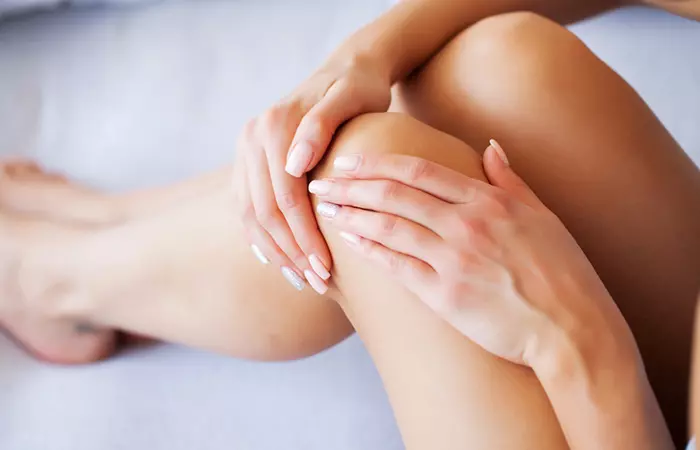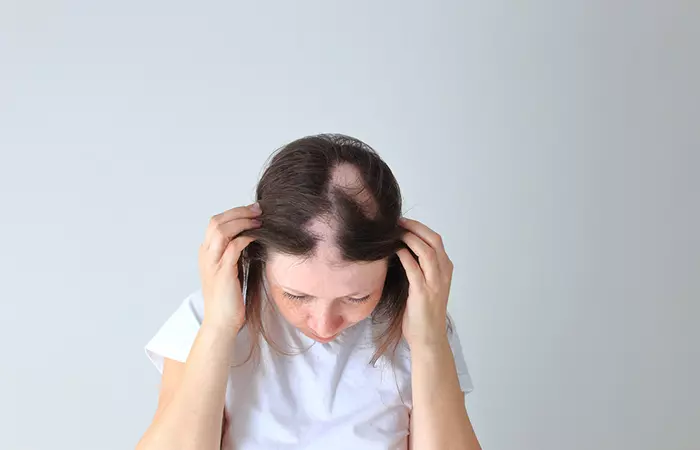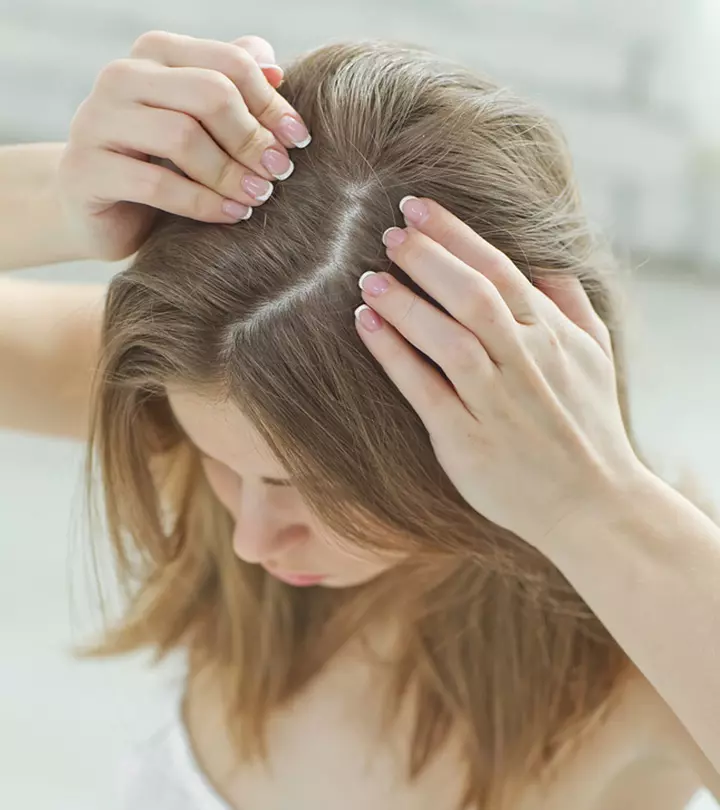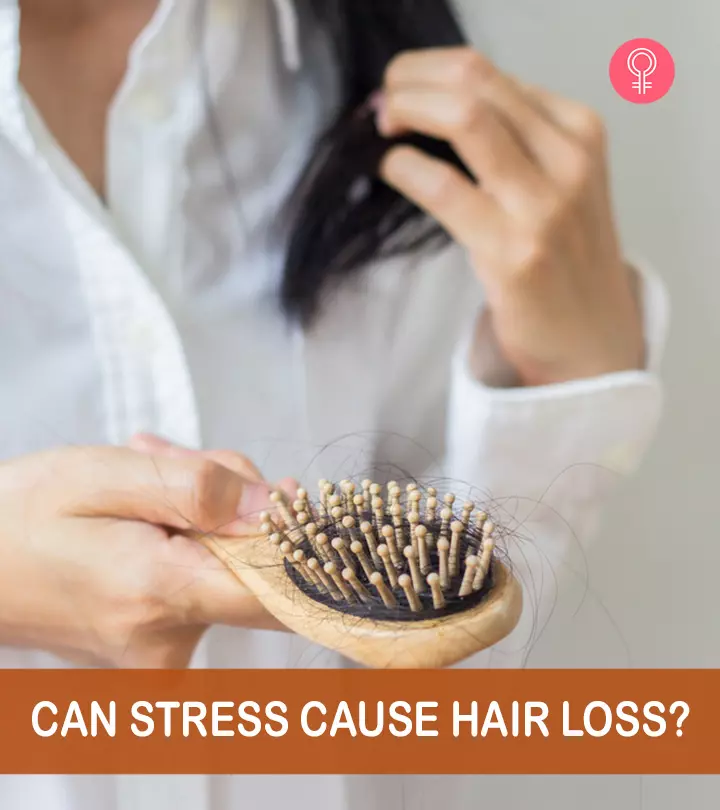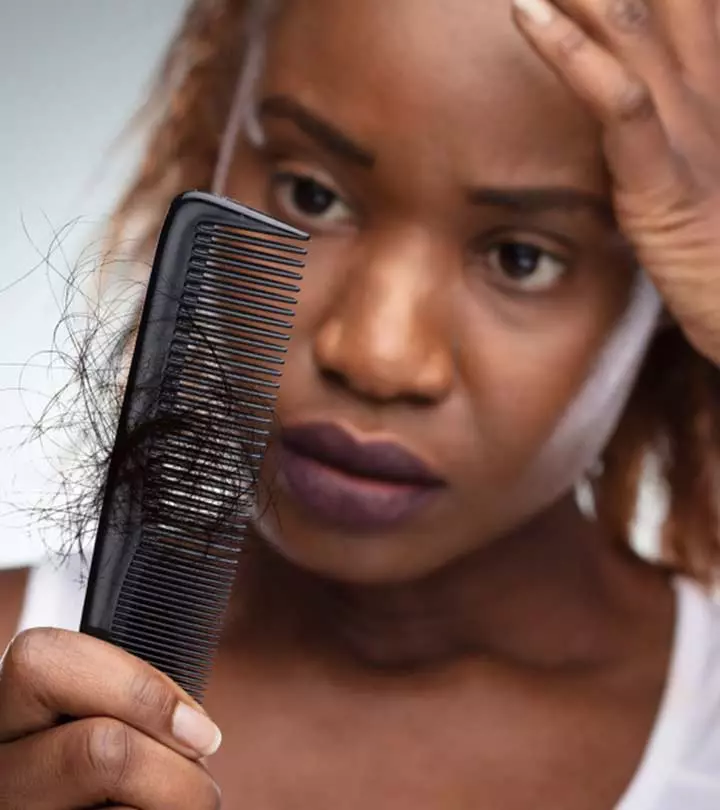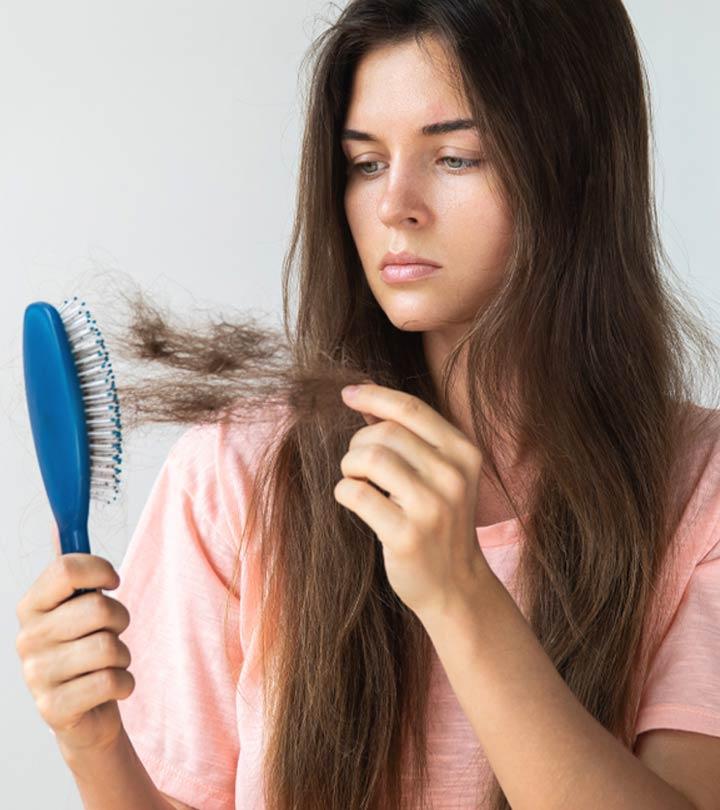Hair Loss on Legs: Causes, Treatments, and Warnings
Consult a doctor to resolve this issue with the right diagnosis and treatment plan.

Image: Shutterstock
You may not take hair loss on your legs as seriously as that on your head. But, wait! You may be under the wrong notion that it is not worth worrying about.
You may be partly correct. But what if we have told you that this hair loss can be a sign of a serious medical condition? Yes. It may be a sign of diabetes or a thyroid disorder. It is possible that you may have inherited this condition from your family members. This article explores the various ways to diagnose hair loss on the legs, treatments options, and many more. Take a look!
In This Article
Understanding Hair Loss on Legs
Under ordinary circumstances, hair fall is quite natural. New strands replace the old ones when they break off from the roots. However, when the follicles can no longer support growth, hair starts falling out, usually in chunks.
Certain hereditary and autoimmune disorders, such as alopecia areata, can cause hair thinning, baldness, and hair loss on the scalp. In this condition, the immune system of the person starts attacking the cells that support hair growth. Another form of this disorder, called alopecia universalis, is body-wide hair loss.
Loss of hair on the legs typically occurs due to anterolateral leg alopecia. This condition affects the hair on the outer and front sides of the legs. Besides, aging may be a contributing factor since it can cause thinning of leg hair.
Have a look at other leading causes that may trigger loss of body hair.
What Are The Leading Causes of Leg Hair Loss?
Hair loss is not generally isolated. Chances are you may be losing them from other body parts, as well. This is only if the underlying reasons are peripheral artery disease (PAD) in the legs or friction from clothing.
Let us understand the potential causes in detail:
1. Hypothyroidism And Hyperthyroidism
The thyroid gland largely determines the health of your hair follicles. Both hyperthyroidism (overactive thyroid) and hypothyroidism (underactive thyroid) can affect hair growth (1). These conditions may cause serious hair loss issues like androgenic alopecia (known as male pattern baldness in men and female pattern baldness in women), and if left untreated may cause full body hair loss.
You may experience premature hair fall when the thyroid interrupts your normal hair growth cycle. Usually, the strands start shedding from the scalp. But, other body parts – such as legs and hands – may also be affected.
Besides, certain anti thyroid medications – such as propylthiouracil and carbimazole – can trigger hair loss on your legs (2).
You should check for hypothyroidism symptoms such as:
- Depression
- Fatigue
- Memory problems
On the other hand, some hyperthyroidism symptoms are:
- Anxiety
- Tremors
- Excessive sweating
- Difficulty sleeping
2. Friction Due To Clothing
The type of clothing or socks you wear can also cause your leg hair to fall out (3). However, it may not be the sole reason.
3. Role Of Diabetes In Hair Loss
Losing body hair has been linked with diabetes, particularly type-2 diabetes (4), (5). Over time, the patient may develop peripheral artery disease (PAD).
In this condition, the blood vessels of the legs suffer significant damage when plaque, a fatty deposit, accumulates inside them (6). Consequently, due to interrupted blood flow, your hair may fall out.
4. Genetic Hair Disorders
Some genetic hair disorders – such as hypotrichosisi A rare genetic disorder with no hair growth on the head, in the place of the eyebrows, and in other areas where hair usually grows. – can be responsible for hair loss on the legs. People with this disorder have fragile and sparse body hair since birth. They may completely lose their hair over time.
5. Adrenal And Pituitary Glands Disorder
The function of the adrenal gland is to produce hormones like aldosterone and cortisol. When a person has Addison’s disease, their adrenal gland does not function properly.
As a result, the hormonal imbalance may cause the loss of body hair in women (7). Stomach ailments, skin color changes, and fatigue are other symptoms of this adrenal gland disorder.
If you suspect that you have Addison’s disease, it is best to consult a doctor. This condition could be life-threatening if you do not receive timely treatment.
Apart from that, other hormonal changes caused by menopausei Time that marks the stoppage of the monthly menstrual cycle due to a natural decline in reproductive hormones in women. , pregnancy, pituitary gland disorders, and polycystic ovary syndrome (PCOSi Polycystic ovarian syndrome, when the ovaries produce an abnormal amount of male sex hormones in women and cause irregular periods. ) may cause hair loss on the legs (8).
6. Sexually Transmitted Infections (STI)
Patchy hair loss may occur in the later stages of sexually transmitted infection (STI), such as syphilis (9). It is usually accompanied by a rash, sore throat, and fever.
7. Iron Deficiency
When you consult a doctor about hair loss, chances are they will recommend blood tests to determine your iron levels. Nutritional deficiencies like an iron deficiency can cause anemia and trigger hair loss (10).
Therefore, you should include dark leafy greens, beans, red meat, and other iron-rich food in your diet to prevent loss of body hair.
Apart from iron, your body needs vitamin D and protein for hair growth.
 Quick Tip
Quick Tip8. Excess Vitamin A And Selenium
Every person should get the right dose of vitamins and minerals. If you take supplements, you should not overdo it. Research indicates that excess amounts of vitamin A and selenium in the body can cause your leg hair to fall out (11).
9. Stress
If you are constantly stressed, you may lose hair on your legs (12). Although there is limited research to prove this, alopecia areata may also be triggered due to severe stress.
Some strands may break away a few months after you were exposed to stressful circumstances. This is known as telogen effluvium.
Apart from that, a mental health disorder that goes by the name of trichotillomania may cause the patient to pull out their own hair because of stress.
 Quick Tip
Quick Tip10. Drug-Induced Alopecia
Unfortunately, losing leg hair can be a side effect of medication. Also known as drug-induced alopecia, this condition usually affects the scalp. However, it can lead to loss of body hair on legs and arms, as well.
In a study conducted in 2014, an antifungal medication called Voriconazole was reported to be the cause of hair loss on arms and legs by 42% of the participants (13). When the participants in the study discontinued the medication, their hair grew back.
Other medications may trigger hair loss, such as:
- Cholesterol-lowering medications
- Beta-blockers
- Thyroid medication
- Antidepressants
- Amphetaminesi Strong, addictive drugs that stimulate the brain and may help treat conditions like ADHD, obesity, and narcolepsy (a sleep disorder).
- ACE inhibitors, such as Lisinopril and Perindopril
11. Severe Folliculitis
If your hair follicles are infected by bacteria, it may cause weeping, pain, and inflammation if left untreated. The medical term for this is folliculitis. This fungal infection can lead to hair loss from the legs, arms, chest, face, and pubic region. It is characterized by scars, pustules, swelling, and redness on the skin surrounding the follicles.
Certain medical treatments may also cause body hair loss. Hair fall on the legs is a common sign of chemotherapy-induced hair loss and radiation-induced hair loss.
You may be wondering how common body hair loss is among men and women. Let us find out!
Prevalence Of Hair Loss On Legs In Men And Women
Even though hair loss on the legs affects both men and women, the prevalence of anterolateral leg alopecia is higher in men.
According to a study, anterolateral leg alopecia affects 35% of all older men (14).
The precise cause of this condition is not known. However, hereditary factors are known for being the common cause, like other forms of alopecia.
Now that we have covered the causes, it is time to move on to the diagnosis of leg hair loss.
Diagnosing Hair Loss On Legs
If you are noticing severe hair loss on your legs, a proper medical diagnosis is crucial. Besides running blood tests, the doctor will look at your medical history and check for conditions that may be triggering the hair fall.
Since hair loss is not isolated in most cases, the doctor will check if you have been losing hair from other body parts.
There may be a dermatology condition that is causing the excess hair loss. If the cause is a skin condition, such as psoriasis, you will be referred to a dermatologist. On the other hand, if you are diagnosed with PAD, your treatment will be directed towards controlling:
- High blood pressure
- High cholesterol
Once the underlying cause of loss of body hair on the legs and arms is detected, your treatment will begin.
Treating Hair Loss On Legs: What To Expect
Your hair can grow back if the treatment is effective. If your hair loss results from a medication side-effect, the doctor will either change it or lower the dosage.
If the doctor does not find any other symptoms, no treatment may be required if the hair loss on the legs does not bother you.
Besides, the cause may not always be chronic. Loss of body hair may also be triggered by acute conditions, life changes, and stress. However, if it is accompanied by muscle loss, you should see your doctor.
Avoid taking over-the-counter medication for hair loss without a doctor’s advice. Some of them may worsen your underlying symptoms.
Infographic: Top Reasons For Hair Loss On Legs
Hair loss on the legs is generally not seen as a serious medical concern. In fact, many of us prefer to have hairless legs and arms. However, do watch out if the hair on your legs is shedding on its own. It may be a sign of an underlying health condition. In the infographic below, we have listed some of its possible causes. Take a look.

Illustration: StyleCraze Design Team
Multiple factors such as genetics, thyroid disorders, diabetes, STI, medications, stress, and improper hair care practices can lead to hair breakage, hair damage, and hair shedding on the legs. While both women and men lose leg hair, studies suggest it is more prevalent in men. If you start losing large chunks of hair on your leg, consult your doctor immediately.
Once the cause behind the hair loss is determined, your doctor may change the medication dosage or prescribe over-the-counter medications to treat hair loss. Finally, do not make any changes in your lifestyle without consulting your doctor.
Frequently Asked Questions
Do you lose leg hair as you age?
Possibly not. According to anecdotal evidence, hair gets thinner as you age, and your legs may exhibit thin hair. But you may not lose leg hair with age.
Does low testosterone cause hair loss on legs?
Possibly. Anecdotal evidence suggests that low testosterone levels are associated with hair loss not only on your scalp, but also on your arms and legs.
Can dry skin cause hair loss on legs?
Anecdotal evidence suggests that there are a number of skin conditions that can cause hair loss in the legs. These conditions include dermatitis, seborrhea, psoriasis, eczema, and keratosis pilaris. However, research is warranted to support this claim.
Key Takeaways
- Hair loss on legs may be caused by hyperthyroidism, hypothyroidism, the type of clothing you wear, genetic issues, stress, etc.
- Anterolateral leg alopecia, a hereditary disorder of losing hair on legs, affects 35% of all older men.
- A proper medical diagnosis is essential to treat this hair loss condition.
- Some over-the-counter medications may also worsen the condition.
Are you looking for ways to grow leg hair? This video will show you how to increase the hair on your legs. Check it out to learn how to achieve the best results.
References
Articles on StyleCraze are backed by verified information from peer-reviewed and academic research papers, reputed organizations, research institutions, and medical associations to ensure accuracy and relevance. Read our editorial policy to learn more.
- Thyroid hormone signaling controls hair follicle stem cell function
https://www.ncbi.nlm.nih.gov/pmc/articles/PMC4454174/ - A Descriptive Study of Alopecia Patterns and their Relation to Thyroid Dysfunction
https://www.ncbi.nlm.nih.gov/pmc/articles/PMC3746235/ - Frictional (Sock) Alopecia of the Legs: Trichoscopy as an Aid
https://www.ncbi.nlm.nih.gov/pmc/articles/PMC6029005/ - Association of type 2 diabetes with central-scalp hair loss in a large cohort study of African American women
https://www.ncbi.nlm.nih.gov/pmc/articles/PMC6831789/ - Hair follicle characteristics as early marker of Type 2 Diabetes
https://pubmed.ncbi.nlm.nih.gov/27692164/ - Physiology in Medicine: Peripheral arterial disease
https://www.ncbi.nlm.nih.gov/pmc/articles/PMC3841832/ - Dermatologic manifestations of endocrine disorders
https://www.ncbi.nlm.nih.gov/pmc/articles/PMC5682371/ - Hormonal Effects on Hair Follicles
https://www.ncbi.nlm.nih.gov/pmc/articles/PMC7432488/ - Syphilitic alopecia: uncommon trichoscopic findings
https://www.ncbi.nlm.nih.gov/pmc/articles/PMC5661157/ - Iron Plays a Certain Role in Patterned Hair Loss
https://www.ncbi.nlm.nih.gov/pmc/articles/PMC3678013/ - Diet and hair loss: effects of nutrient deficiency and supplement use
https://www.ncbi.nlm.nih.gov/pmc/articles/PMC5315033/ - Stress and the Hair Growth Cycle: Cortisol-Induced Hair Growth Disruption
https://pubmed.ncbi.nlm.nih.gov/27538002/ - Alopecia and Nail Changes Associated With Voriconazole Therapy
https://academic.oup.com/cid/article/59/3/e61/2895330 - Anterolateral Leg Alopecia: Common but Commonly Ignored
https://www.ncbi.nlm.nih.gov/pmc/articles/PMC4154156/
Read full bio of Dr. Shruti Chavan
Read full bio of Ramona Sinha
Read full bio of Medha Deb





